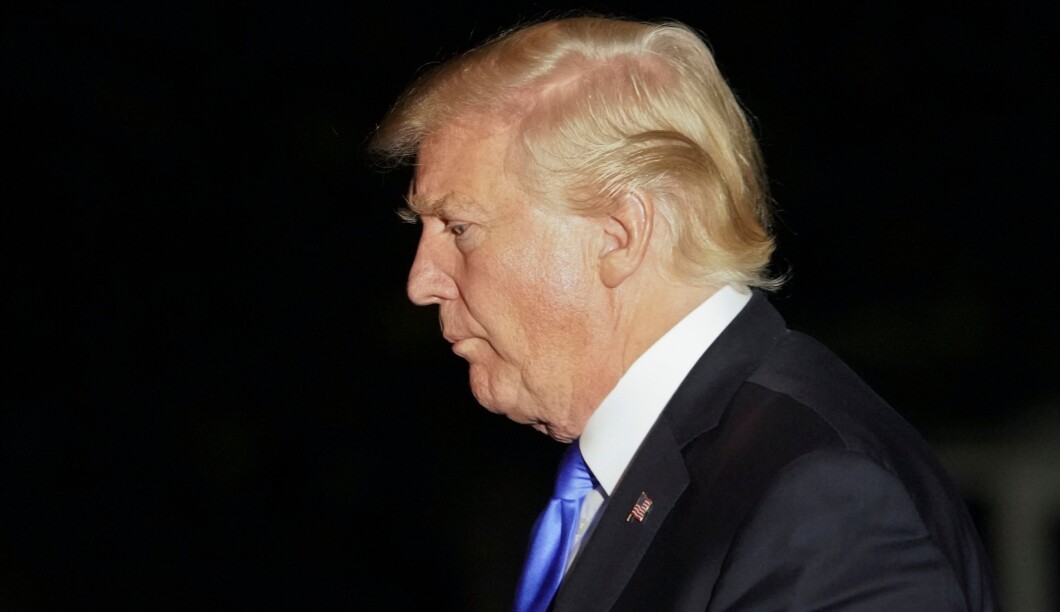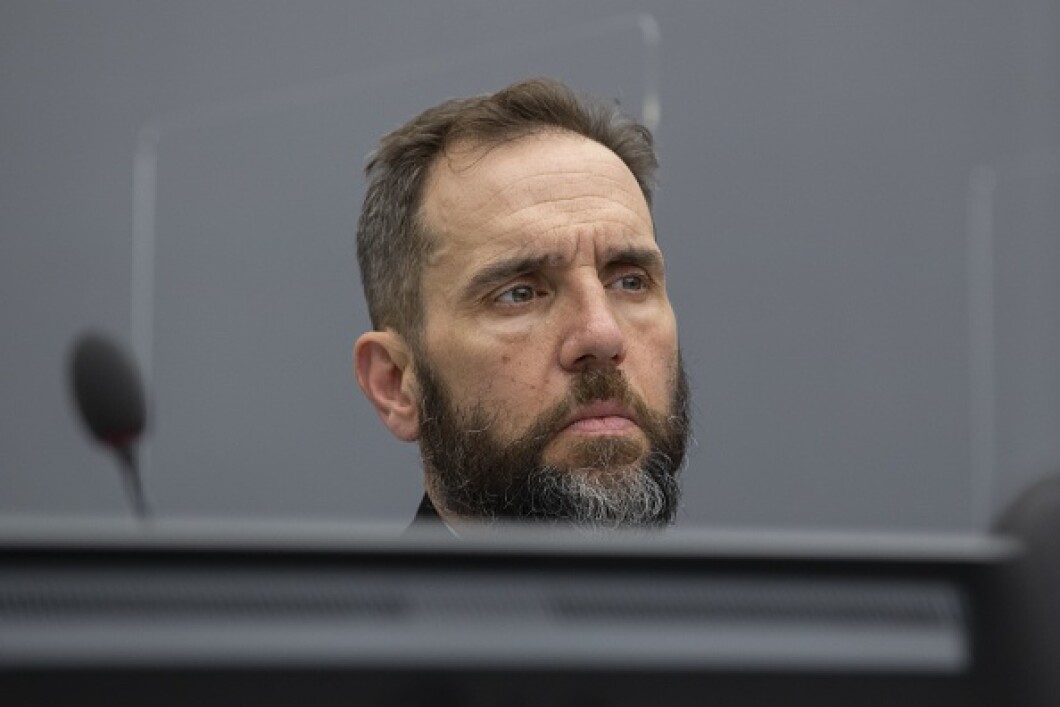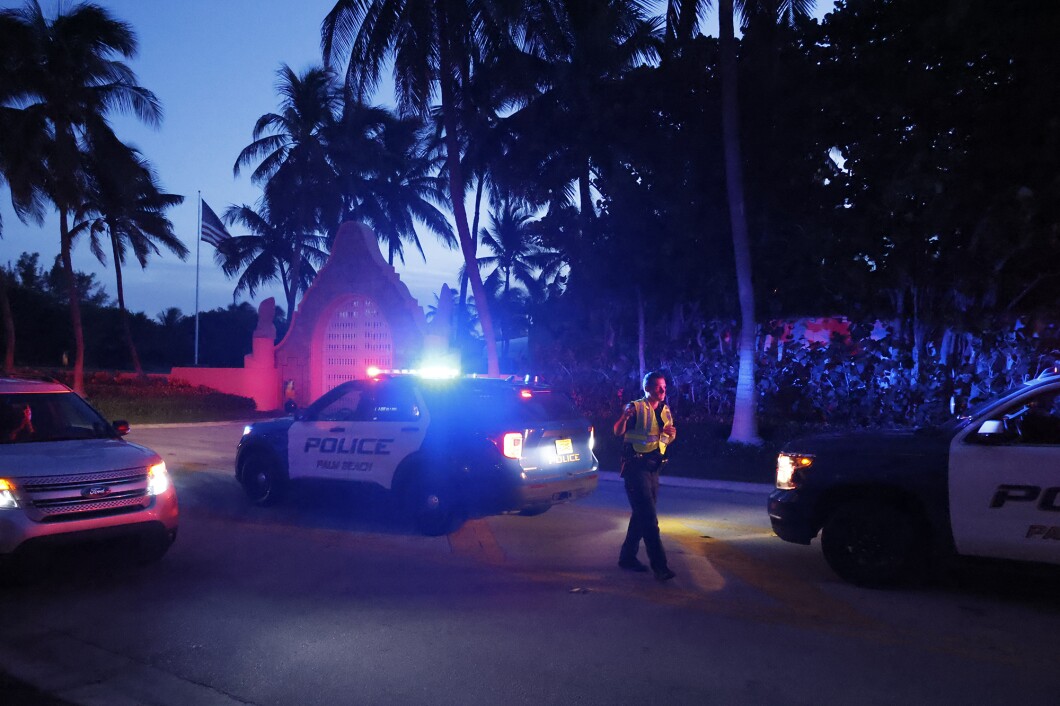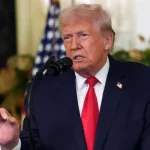
Donald Trump’s counsel said Thursday evening the former president is facing seven charges, including a violation of the Espionage Act, making false claims, and conspiracy to obstruct justice.
While the official details of the indictment are not yet clear, Trump’s attorney Jim Trusty said the charges included willfully retaining national defense documents in violation of the Espionage Act, tying back to special counsel Jack Smith’s investigation into Trump’s alleged mishandling of classified records at his Florida resort home.
WILDFIRE SMOKE MAP: LIVE TRACKER

Trusty said Trump had been served with a summons instead of a charging document. Trusty also mentioned that the charges included retention, obstruction, and false statements, adding that he believed there might be a conspiracy count as well.
“It doesn’t perfectly mirror an indictment, but it does have some language in it that suggests what the seven charges would be,” Trusty said on CNN.
Trump’s attorney said one charge related to 18 U.S.C. 793, part of the Espionage Act, which the FBI’s August search warrant said was related to “willful retention of national defense information.”
The Trump lawyer said there were also “several” obstruction charges related to 18 U.S.C. 1512, which deals with “tampering with a witness, victim, or an informant,” and some related to 18 U.S.C. 1519, which covers “destruction, alteration, or falsification of records in Federal investigations.”
Trump attorney Jim Trusty joins for his first interview since Trump was indicted. There is:
— An Espionage Act charge
— Several obstruction-based charges
— False statement charges
— Is there a conspiracy charge in here? “I believe so, I don’t have it in front of me right now.” pic.twitter.com/8zOCynIygB— Kaitlan Collins (@kaitlancollins) June 9, 2023
Trusty emphasized that the summary sheet was not “biblically accurate” and that certain language might actually be “reflecting a single count instead of two.”
To obtain a conviction for “willful retention,” prosecutors would need to prove to a jury the documents related to national defense, that they were tightly held, and that public visibility of the records could harm the United States or aid a foreign adversary.
Trump has claimed without evidence that he declassified all the files he took to Mar-a-Lago, though the law the Department of Justice is investigating does not require documents to be classified for a crime to have been committed.
Each of such charged documents would require a separate offense, so prosecutors could theoretically bring up to five counts by citing five different records. A conviction could be up to 10 years in prison per count, but defendants in other Espionage Act cases have received less than the maximum.
A charge for obstruction would necessitate prosecutors to show Trump still held on to files that were subject to efforts by the National Archives and Records Administration to take custody of presidential records. The penalty is up to 20 years per offense.
It is also a crime to make false statements to law enforcement regarding a fact material to an ongoing investigation, and such violations carry a penalty of five years per offense.
Republicans snapped at President Joe Biden on Thursday over his “weaponization” of the federal government after it was revealed the DOJ had indicted the former president.
Speaker of the House Kevin McCarthy (R-CA) said it was a “dark day” for the country as Trump was charged over the classified material found in his Mar-a-Lago estate, while Biden was not for classified documents recovered at his Delaware home in January.
Trusty said that the summary sheet asked “us to be at the courthouse Tuesday” at 3 p.m., which will be at the U.S. District Court for the Southern District of Florida. A section of the government court website where Trump’s likely indictment will be posted crashed Thursday evening.
Trump has denied wrongdoing and declared, “I AM AN INNOCENT MAN!” in a Truth Social statement.

Smith, the special counsel investigating Trump, is known to have convened grand juries in the nation’s capital and in southern Florida, with the Florida grand jury reportedly receiving testimony on the classified documents saga in recent days. Trump’s former chief of staff, Mark Meadows, has reportedly testified before one of Smith’s grand juries. It is still possible that charges could be handed down in both districts.
The documents investigation emerged in a dispute between Trump and the National Archives shortly after January 2021. Archives officials began asking him to return the records, citing that they were federal government property.
Trump initially resisted but agreed after January 2022 to return 15 boxes of materials. Archives officials later discovered some documents were marked classified and alerted the Justice Department.
The DOJ issued a subpoena for Trump to return all remaining classified records in April 2022. They also subpoenaed surveillance footage from Trump’s Mar-a-Lago estate, which his company, the Trump Organization, monitored remotely.
In early June 2022, DOJ officials met Trump lawyers Evan Corcoran and Christina Bobb at Mar-a-Lago, where they handed over another sealed folder containing classified records. They also handed a signed letter telling the DOJ that the folder represented all of the remaining classified material at Trump’s property.

But in August, the FBI raided Trump’s estate and recovered additional boxes containing highly classified material mixed with Trump’s personal items and other non-classified presidential documents.
CLICK HERE TO READ MORE FROM THE WASHINGTON EXAMINER
This is the second time Trump has been indicted. Earlier this year, a grand jury in New York indicted Trump on state charges for allegedly falsifying business records related to hush money payments to women who said they had affairs with Trump.
Part of Smith’s inquiry includes an investigation of the Jan. 6, 2021, riot at the U.S. Capitol. An inquiry in Georgia probing whether Trump attempted to interfere with the 2020 election results is also ongoing.






